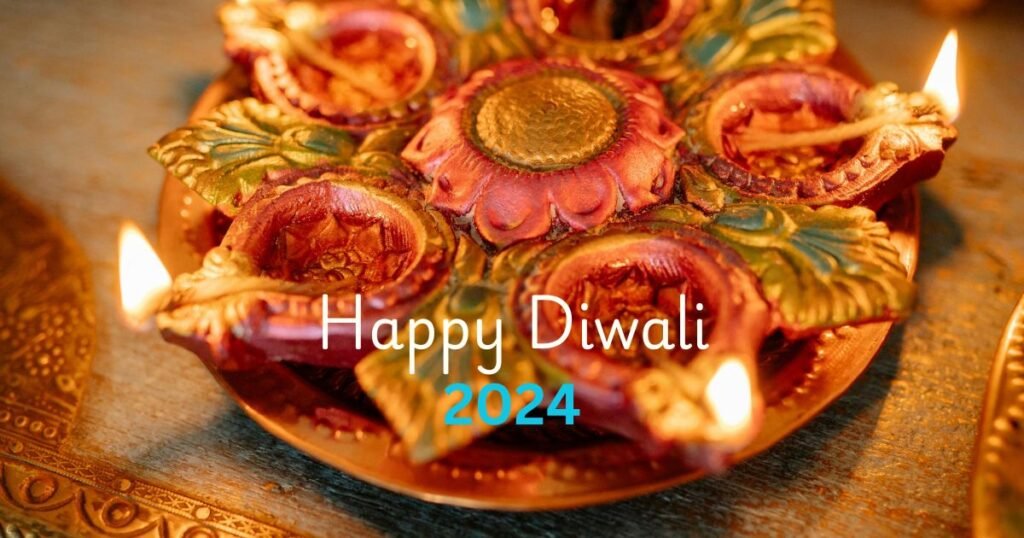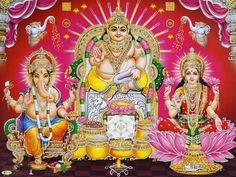Table of Contents
ToggleWhy We Celebrate Diwali? – Reasons to Celebrate Diwali
Diwali, often known as the Festival of Lights, is one of the most celebrated and cherished festivals in India and among Hindu communities worldwide. This festival symbolizes the victory of light over darkness and good over evil. But beyond its glittering diyas (lamps) and festive sweets, Diwali has deep cultural and religious significance that dates back thousands of years. Here, we explore the many reasons why Diwali is celebrated and the values it represents.
The Legend of Lord Rama and His Return to Ayodhya
One of the central stories behind Diwali is the return of Lord Rama to Ayodhya after a 14-year exile. According to the Hindu epic, the Ramayana, Rama, his wife Sita, and brother Lakshmana returned to Ayodhya after defeating the demon king Ravana. The people of Ayodhya lit oil lamps in every home to welcome their beloved prince back, symbolizing the triumph of good over evil. This is why lighting lamps, or diyas, remains one of the most iconic traditions of Diwali.

Significance of Light
The lamps lit during Diwali aren’t just decorative. They symbolize hope, purity, and the inner light within each of us that can drive away negativity. Lighting diyas during Diwali is a way to honor this symbolism, inviting goodness into our lives and dispelling darkness.
The Worship of Goddess Lakshmi – The Deity of Wealth
Diwali also holds great significance as a day for worshipping Goddess Lakshmi, the deity of wealth and prosperity. Many Hindus believe that on Diwali night, Lakshmi roams the earth, blessing homes that are well-lit, clean, and welcoming. Families perform Lakshmi Puja, a prayer ritual dedicated to the goddess, to invite wealth and fortune into their lives for the upcoming year.
The Role of Wealth and Prosperity
In Hindu culture, wealth is seen as a form of divine energy that can be used to do good in the world. By inviting Lakshmi’s blessings, devotees hope to bring prosperity not just for themselves but for their community as well.
Read also:
Lord Krishna and the Defeat of Narakasura
In some regions, especially in South India, Diwali is celebrated as the day when Lord Krishna defeated the demon king Narakasura. The demon had terrorized both the heavens and the earth, and his defeat was a moment of liberation for many. Celebrating Diwali thus becomes a tribute to the forces of good and the heroes who protect humanity from evil.
Honoring the Power of Goodness
This aspect of Diwali reminds people of the power of righteousness and courage in defeating evil. It reinforces the idea that even in difficult times, goodness and justice will prevail.
The Harvest Festival – Celebrating Abundance
Diwali is also associated with the harvest season in India, especially in northern regions. The festival usually takes place after the monsoon season when crops are bountiful, and the earth is lush. Farmers give thanks for the harvest and pray for future prosperity, making Diwali not just a spiritual celebration but also a joyful occasion for abundance.
Expressing Gratitude
This agricultural connection highlights the gratitude that people have for the gifts of nature. By celebrating Diwali, communities show appreciation for the earth’s bounty and the cycle of life that sustains them.
The Social and Cultural Significance of Diwali
Diwali is more than a religious festival—it’s also a time for communities to come together, share joy, and strengthen social bonds. Families and friends gather to celebrate, exchange sweets, and give gifts. The festival fosters a sense of unity, encouraging people to forget past grievances and start fresh.
A Celebration of Togetherness
Through family gatherings and community events, Diwali encourages the spirit of togetherness and sharing. It is a reminder of the importance of love, compassion, and generosity.
Conclusion
Diwali is a multi-faceted festival that holds different meanings for different people. Whether celebrated in honor of Lord Rama, Goddess Lakshmi, Lord Krishna, or as a harvest festival, Diwali embodies universal values of light, hope, and gratitude. It’s a time when families come together, communities unite, and individuals reflect on their inner light. The Festival of Lights reminds us that no matter the darkness, there is always a path towards brightness, compassion, and harmony.
Diwali’s essence lies in its ability to renew our spirits, strengthen our bonds, and remind us of the beauty in celebrating life’s blessings.
FAQs:
1. Why do we celebrate Diwali?
Diwali, also known as the Festival of Lights, is celebrated to mark the triumph of light over darkness and good over evil. People celebrate Diwali to honor various traditions; in Hinduism, it is commonly associated with the return of Lord Rama, his wife Sita, and his brother Lakshmana to Ayodhya after a 14-year exile and a victory over the demon king Ravana. Diwali also holds significance in other religions, including Sikhism, Jainism, and Buddhism, where it symbolizes important events such as the release of Guru Hargobind Ji in Sikh history and Mahavira’s attainment of nirvana in Jainism.
2. What is the true story behind Diwali?
The story behind Diwali varies depending on the cultural and regional beliefs within India and beyond. In the most popular Hindu version, Diwali celebrates Lord Rama’s return to Ayodhya after defeating Ravana, symbolizing the victory of righteousness and virtue. In some regions, it celebrates the goddess Lakshmi, the deity of wealth and prosperity, who is believed to visit homes and bless people with good fortune. In Jainism, Diwali marks the nirvana (liberation) of Lord Mahavira, and in Sikhism, it commemorates the release of Guru Hargobind Ji and 52 princes from imprisonment by the Mughal Empire. Each tradition shares a common message of hope, spiritual enlightenment, and victory over ignorance.
3. What is the special meaning of Diwali in English?
In English, Diwali translates to the “Festival of Lights.” It signifies a celebration of illumination, symbolizing the victory of light over darkness, knowledge over ignorance, and good over evil. The lighting of diyas (oil lamps) and fireworks reflects this meaning, as people illuminate their homes and communities in a joyous display of light and festivity.
4. What is the short note for Diwali?
Diwali is an important cultural and religious festival celebrated by millions worldwide. Known as the Festival of Lights, it symbolizes the victory of good over evil and light over darkness. During Diwali, people decorate their homes with lamps, burst fireworks, exchange sweets, and worship deities such as Lakshmi, the goddess of wealth. It’s a time for joy, unity, and hope, celebrated across multiple religions including Hinduism, Sikhism, Jainism, and Buddhism, each of which attaches unique historical and spiritual significance to the festival.

